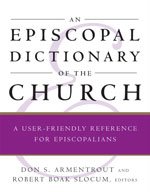
Why does the patron saint of seminarians have to be...................
this guy?
I mean, I was hoping for something a little more spicy. Somebody who was discouraged about the establishment they were wedding themselves to, somebody who turned over the altar in the chapel because it was taken too seriously, somebody who stood up in class and shouted about the elephants in the room (of which, even in the 1500's, there must have been a few). I was biting my nails looking up the patron saint of seminarians. I thought for sure it would be some woman who dressed up like a man and made it through the first 6 years before she was uncovered and expelled. Or someone who got all F's all through their first two years and then discovered their niche and triumphed over academia. Heck, I would even take someone who lobbied for better food in their flippin' dining hall. But no, it is this guy, with this schnoz, and this red yarmulke. Great. Love the collar.
Alas, it is
this guy.
Charles Borromeo is about the worst patron saint of seminarians I can think of. Hopelessly of-the-establishment, son of a Medici, nephew of a Pope. Among the other really boring things he did, he helped open some seminaries. Wave your Charlie Borromeo flag, everyone, Woo Hoo for Charlie and his seminary-opening magnificence.
It's just not right.
Our procession in with the icons today at our seminary eucharist was great. The incense smelled good, the music was familiar, and the projector ran all kinds of a goodies in the form of icons and photos of saints, canonized and otherwise. I wanted to flip Athanasius off when his picture came up but I just looked at the floor instead. And I heard a sermon that made me weep, and caused me to drag up images in my mind of the saints of my life. So, I've got some icons of my own. And don't worry your pretty little head, I'm working on a new patron saint of seminarians. So, when Charlie's Day rolls around (NOVEMBER 4th) I will have a substitute waiting to crash his party.

Bobby Dylan: In my life, Bob Dylan is the Patron Saint of Big Dreams and Changing Times. He was a herald of what was coming, in music, in politics, and among the people. Patron saint of all places reminiscent of Greenwich Village.

SC, my Patron Saint of Confidence. My former college roommate has lived on three continents, and currently runs a medical clinic for ex-pats and natives in Shanghai. She has a masters from a French university. She is not intimidated by much at all, and is willing to try anything. She is positive and bright, and determined and hilarious. I will always think of her when I feel like I cannot accomplish something.

MJK - my patron saint of the Teachable Spirit. This woman is beautiful, sensible, and strong, but she is also curious and sensitive, and tries her very hardest to work, play, and live to the best of her ability. She always asks questions at the heart of the matter, and is just about the funniest person you'll meet. A truly inspirational person.
There are endless saints in my saint box. Who is in yours?










